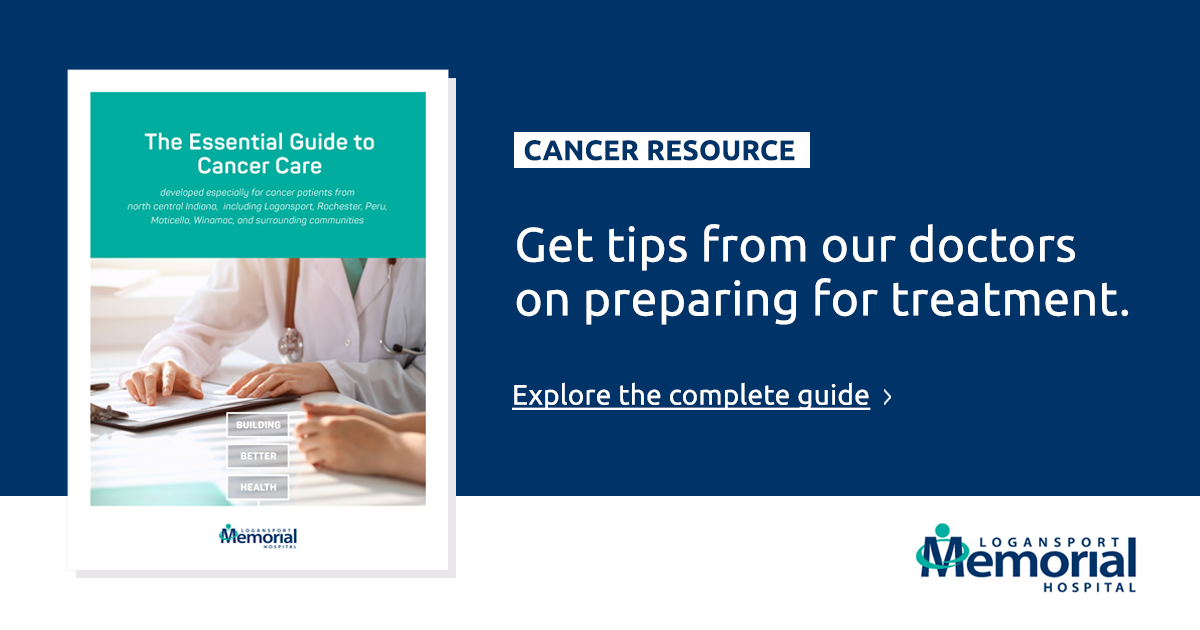When it comes to cancer, the saying "knowledge is power" is very true. The more you know about cancer types and risk factors, the better chance you have to proactively care for yourself with screening and healthier habits. Cancer can happen to anyone and in any part of the body. However, there are some cancers that are more common than others. What are the three most common cancers for men?

According to the Center for Diseases Control, the following cancers are the most commone for men in order of frequency:
- Prostate cancer
- Lung cancer
- Colorectal cancer
Reducing you risk of prostate cancer
It is possible to develop prostate cancer without any of the risks listed here. However, these risk factors have been shown to increase your risk of getting the disease. Factors that increase the risk of prostate cancer include:
- Age - after 50 the risk increases, most prostate cancers are seen in men over 65
- Race/Ethnicity - African Americans have higher rates of prostate cancer in the U.S.
- High-fat diet
- Lack of exercise
- Family history
You can't eliminate these risk factors from your life but you can take steps to reduce your risk by eating a healthy diet, particularly foods high in lycopene such as grapefruit and tomatoes. Exercising regularly has also been shown to reduce the risk of prostate cancer and many diseases. Talk to your doctor about medication that may also reduce your personal risk.
Reducing your risk of lung cancer
It is possible to develop lung cancer with or without the risk factors listed below. However, the more risk factors you have, the greater your likelihood of developing lung cancer. If you have a number of risk factors, ask your doctor what you can do to reduce your risk.
Some factors cannot be controlled, such as age, gender, or ethnicity. Almost all lung cancer is found in people over the age of 40 years, but it is most common in men after the age of 65 years. African-Americans, both men and women, carry a substantially higher risk of developing lung cancer than Caucasians. It should be noted that although smokers carry the biggest burden of risk in developing lung cancer - nearly 85% of all lung cancers are associated with smoking - it does occur in non-smokers.
Quitting smoking is an important step in preventing most cancers, but none so much as lung cancer. The sooner smoking is stopped, the sooner the body can start to heal.
Avoid or reduce occupational exposure to certain chemicals. (People who work in the coal industry, construction, or who are exposed to by-products of combustion may come into contact with harmful substances.) Check with the National Institute for Occupational Safety and Health or the Environmental Protection Agency about any available protective guidelines.
Avoid or reduce environmental exposure. (Radon gas levels in your home can be measured by a professional or with a home test kit. If you use chemicals at home, wear a mask, gloves, goggles, and protective clothing. Using proper ventilation can also help reduce your exposure.
Reducing your risk of colorectal cancer
Heredity is considered the strongest risk factor for developing colorectal cancer. This risk increases if you have a primary relative such as a parent, sibling or child who develops colorectal cancer. Certain diseases also increase the risk of developing colorectal cancer: ulcerative colitis, Crohn's disease, Type 2 diabetes and obesity. If you have these risk factors you should talk to your doctor about screening tests such as a colonoscopy.
Three questions to ask your doctor before your colonoscopy.
Other risk factors include many of the lifestyle habits noted above: high-fat diet, lack of exercise and high consumption of alcohol (three or more alcoholic beverages a day). Some of the easiest steps to take towards reducing your risk come from living a healthier and more active lifestyle.
When you or someone you love has cancer, it is normal to want as much information as you can find about cancer types and treatment options. Today's treatment options make most cancers very treatable. In fact, the American Cancer Society notes that "more people than ever before lead full lives after cancer treatment."




